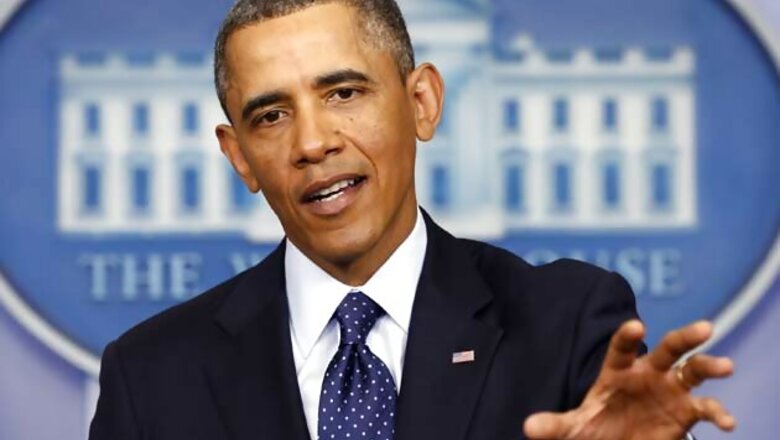
views
United Nations: In the first international test for his climate-change strategy, President Barack Obama pressed world leaders on Wednesday to follow the United States' lead on the issue, even as a one-day United Nations summit revealed the many obstacles that still stand in the way of wider agreements to reduce heat-trapping pollution.
"The United States has made ambitious investments in clean energy and ambitious reductions in our carbon emissions," Obama said. "Today I call on all countries to join us, not next year or the year after that, but right now.
Because no nation can meet this global threat alone." Obama was the headliner at a marathon session of world leaders who promised to spend billions of dollars to take better care of the planet.
Wednesday's one-day meeting at the annual UN General Assembly involving more than 100 world leaders was a forum for non-binding pledges.
It was designed to lay the groundwork for a new global treaty to tackle climate change in December 2015, but it also revealed the sharp differences that divide countries on matters such as deforestation, carbon pollution and methane leaks from oil and gas production: Brazil, a key player in deforestation, said it wouldn't sign a pledge to halt deforestation by 2030.
The United States decided not to join 73 countries in supporting a price on carbon, which Congress had indicated it would reject.
And minutes after Obama said "nobody gets a pass," China's Vice Premier Zhang Gaoli insisted the world treat developing nations, including China, differently than developed nations, allowing them release more heat-trapping
pollution. China has signed a carbon-pricing agreement. "Today we must set the world on a new course," United Nations Secretary-General Ban Ki-Moon said in opening remarks.
"Climate change is the defining issue of our age. It is defining our present. Our response will define our future." In some ways, the climate summit answered that call. The European Union said its member nations would cut greenhouse gases so that by 2030 they would be 40 per cent
below the 1990 level.

















Comments
0 comment